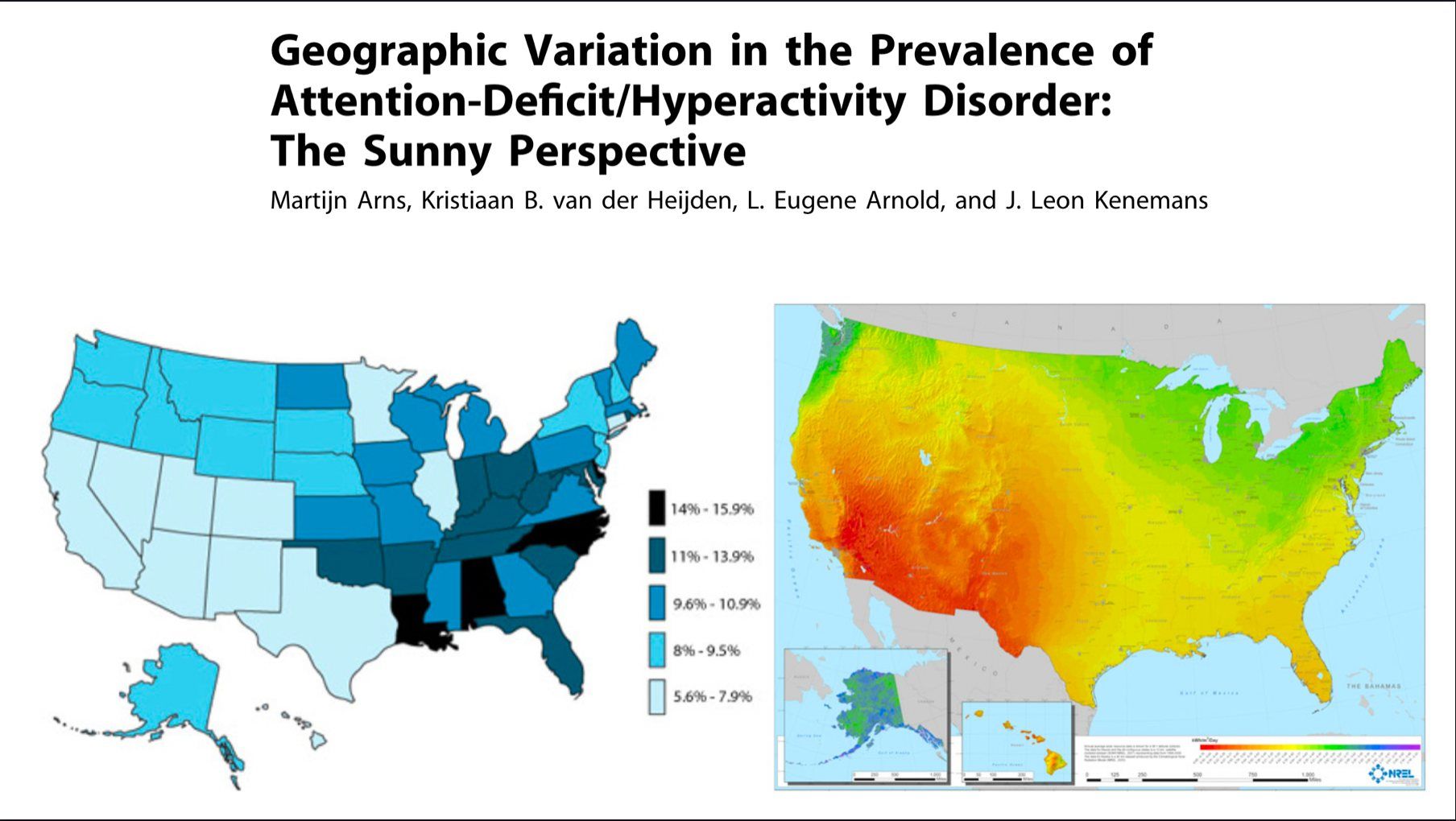Is ADHD Primarily a Sleep Disorder?

ADHD, while a bit of a mixed bag, is primarily (for about 80% of people with the diagnosis) a sleep disorder characterized by circadian disruption.
Melatonin release is delayed by a couple of hours and sleep onset takes longer for these folks than healthy controls, showing low melatonin sensitivity. Most people need to wake up early, despite going to bed late, creating a chronic ongoing sleep deficit.
They face lack of appropriate arousal during the day and lack of proper sleep at night; health is the appropriate amplitude of physiology in relation to timing.
For most, dopamine is low in key brain areas. This makes sense because melatonin regulates and protects dopamine.
Dopamine is like a conductor, making sure that certain brain networks are off while others are on. Without the conductor there, everyone's clambering at once!
Time management is tricky because we require dopamine to plan movement through time.
While not everyone who fits the picture of ADHD has a history of complex PTSD and trauma, almost everyone with cPTSD pretty much perfectly fits the diagnostic criteria for ADHD.
In either case, the limbic system tends to be highly active and the adult pre-frontal cortex often very under-active. Working memory is often compromised.
We could of course just treat the sleep deficit by prescribing speed . . . wake up the old pre-frontal cortex! But this doesn't address the sleep issues, light exposure, or other metabolic aspects common to the disorder. And when given to children, amphetamine prevents healthy skeletal formation during puberty.
Because of melatonin deficits, leptin and ghrelin signaling go wonky, leaving most folks not very hungry in the morning but craving all the carbs! A great way to boost dopamine.
Folks with a diagnosis of ADHD are 2.5 times as likely to have ulcerative colitis, ankylosing spondylitis and autoimmune thyroid disease. I believe this is in part because dopamine is expressed asymetrically in the brain, leaving folks with a left hemisphere dominance, which ramps up the immune system.
Of course, dysbiosis is also associated with ADHD, which in itself is a risk factor for autoimmunity. There's also a very strong relationship between atopic dermatitis and onset of ADHD, as well as other inflammatory associations.
Like with most modern chronic illness, environmental exposures are strongly associated with ADHD. One study in mice found that exposure to nicotine in utero not only could create a mouse model ADHD but that this was passed on through the maternal line to the offspring and 3rd generation! Blimey!
And let's not forget untreated concussions! Many people who are diagnosed simply have a bruised brain . . .There's a concept in Chinese known as Zhengming, which means "proper naming." ADHD is an example of "improper naming" because it labels people based on certain behaviors (poor attention, impulsivity) outside of appropriate context, such as history of childhood trauma, circadian dysruption, light exposure, infection, gut dysbiosis, etc.
There are many interconnected factors. As with most modern complex illness with a chronic inflammatory and immune component, the key is to address things systematically, in a physiologically appropriate order.

